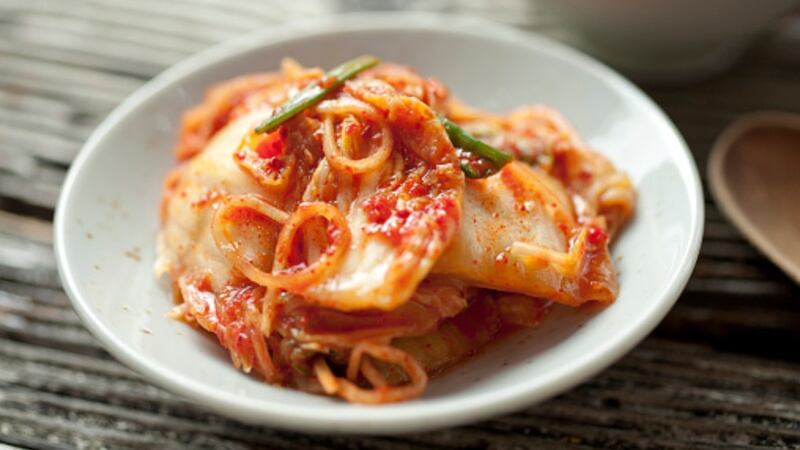The kimchi market in South Korea is in a unique position where domestically-made products are much more highly-prized than imported ones, largely due to the vast majority of imported kimchi entering the country from China and this product perceived by local consumers to be of low quality.
Locally manufactured kimchi made with local ingredients is thought of as the most ‘premium’. But in recent months, local authorities identified a large increase in the imports of ingredients used to make kimchi, leading to concerns of deceit with regard to product origins and the decision to conduct a nationwide crackdown.
“The National Agricultural Products Quality Management Service will be enforcing a crackdown on country-of-origin labelling for kimchi and kimchi vegetables [in] November and December, with a focus on items high in demand during kimchi production season such as cabbage, red pepper powder, garlic, ginger, carrots and so on,” the agency’s Chairman Lee Ju-myeong said via a formal statement.
“For this crackdown to proceed at maximum efficiency amidst the COVID-19 pandemic, we will be utilising a cyber enforcement team to monitor online malls, delivery apps, inspect mail-order vendors and more.
“[Our digital management system] history has already revealed that many kimchi firms have increased imports of items used to make kimchi, such as garlic and onion – these firms will be key points of focus for inspection [to ensure] their origin labelling is not deceitful.”
Between January and September 2021, the agency detected a 38.6% leap in garlic import volumes from 26,700 tons to 37,013 tons as well as an enormous 85.8% leap in onion import volumes from 25,918 tons to 48,149 tons, raising levels of suspicion.
In addition, alarm bells have also been rung as the country is currently undergoing nationwide apprehension over a possible shortage of major ingredients kimchi, which is an important staple food for Korean consumers.
“Looking at the supply and demand of major ingredients used to make kimchi, the production of cabbage and radish [is actually expected to be] lower compared to the average year due to the decrease in cultivation area as a result of poor prices in 2020,” the local Ministry of Agriculture, Food and Rural Affairs (MAFRA) said in a formal statement.
“For example, compared to the average year cabbage cultivation is expected to come in at 11,893ha which is a 7% drop and production volume is expected at 1.18 million tons which is an 8% drop; whereas radish cultivation area is expected at 4,502ha which is a 6.5% drop and volume at 380,000 tons which is a 2% drop.
“Other ingredients such as garlic will also see some decline, which will likely result in higher prices.”
As a result of local ingredient shortage and increased ingredient imports, the ministry has set up a special team of 285 officers to be on crackdown duty to ensure accurate country of origin labelling throughout the duration of the crackdown enforcement, which is currently slated to last until December 10.
Any company that falsely indicates the country of origin of their products is subject to criminal prosecution and a penalty of not more than seven years of jail or not more than KRW100mn (US$84,267), whereas those that completely omit to indicate country of origin will be penalised by not more than KRW10mn (US$8,427).
Dealing with ingredient shortages
Such is South Korea’s concern over potential kimchi shortage that the ministry has also taken extra proactive measures to stabilise the supply and demand over kimchi and related ingredients, such as opening up national reserves.
According to MAFRA, in the case of ‘instability’ in kimchi supply as well as prices, the government is ready to provide an additional 1,000 tons of vegetables, 1,400 tons of chili peppers and 1,000 tons of garlic.
To counter any potential price inflation, discount coupons will also be provided for consumers buying agricultural and livestock products such as kimchi vegetables and pork. This discount will be up to KRW20,000 (US$16.85), and will cover both large supermarkets such as Homeplus, Lotte Mark, Hanaro Mart, GS Retail and more as well as all traditional markets.
Kimchi beef
South Korea and China have been at odds over kimchi and its origins since earlier this year, when the latter attempted to claim kimchi as a food of its own. South Korean kimchi and Chinese pickled vegetables are both named as ‘pao cai’ in the Mandarin Chinese language.
Since then, kimchi imports from China have seen massive dips and as of October 2021 the government has also taken steps to further control imports via the Enforcement Rules of the Special Act on Imported Food Safety Management where ‘pickled/stewed kimchi with cabbage as the main ingredient’ has been added to a list requiring certification and tougher pre-import checks.
But China-made kimchi nonetheless still remains cheaper than locally-produced kimchi, as does a variety of kimchi ingredients available for import from other countries outside of Korea.
So, factoring this into a post-COVID-19 economy that is still in recovery, and setting aside previous national pride over Korean kimchi, it can be seen why authorities are concerned over local firms resorting to imports to lower costs and boost profits.


